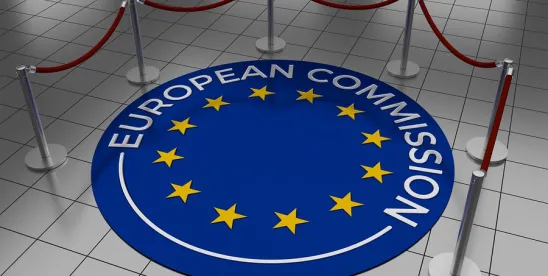On 16 March 2017, EU Competition Commissioner Margrethe Vestager gave a speech on algorithms and competition at the Bundeskartellamt's 18th Conference on Competition in Berlin, during which she discussed the potentially anti-competitive use of pricing algorithms.
The speech, which follows the opening of an investigation involving the use of pricing software by the Commission earlier this year, highlights the competition law risks associated with the use of pricing algorithms and further signals to businesses that online pricing practices are at the crosshairs of competition authorities across the EU.
Price monitoring algorithms and competition law
Algorithms are commonly applied in businesses such as airline tickets, hotel booking and online retail, to determine what price best matches the demand and the offers of competitors. Algorithms are also used in price monitoring software programmes, designed to track competitor or customer prices, products, promotions and alert businesses in real time.
During her speech the Commissioner commented that the issue of automated systems that monitor, and even adjust, prices automatically through the use of algorithms is increasingly attracting the attention of competition authorities and made the following key points:
-
Widespread use of pricing algorithms among businesses
The Commission’s e-commerce sector inquiry report, which was published in December 2016, revealed that the use of pricing software is widespread among retailers, showing that two thirds of the retailers use automatic systems to track their competitors’ prices, while some of them use that software to also adjust prices automatically (read our update here).
-
Facilitating price-fixing or retail price maintenance
Price-monitoring software could be used to facilitate price-fixing or retail price maintenance. To this end, the Commissioner noted: “there is also the issue that manufacturers that want their retailers to stick to minimum retail prices need a way to deal with discount stores that undercut those prices. With monitoring algorithms, manufacturers can easily spot when that is happening.”
-
Collusion through algorithms
Algorithms can be designed to facilitate collusion and businesses may be deemed to be acting in collusion depending on how their algorithms are designed to operate. “There are many ways that collusion can happen, and some of them are well within the capacity of automated systems“, the Commissioner noted.
-
The Commission will scrutinise the online space
Although the Commission’s cases have traditionally dealt with agreements that were concluded by individuals, this does not mean that the Commission will not investigate automated systems that collude. The Commissioner emphasised that competition enforcers across the EU are equipped to deal with anti-competitive practices in the online world and they will make sure that companies do not: “escape responsibility for collusion by hiding behind a computer program“.
-
More effective cartels
Algorithms in automated systems could lead to more effective and stable cartels. Historically cartels have faced collapse as their members would start cheating each other by deviating from the agreed inflated prices. By monitoring the prices of the cartel members, algorithms can easily spot such cheating and ultimately remove incentives to deviate from the cartelised prices.
Commissioner Vestager’s speech comes amidst increased enforcement into online practices and mirrors the concerns and recent enforcement activity by national competition authorities. In August 2016, the UK Competition and Markets Authority issued an infringement decision against two online sellers of poster and frames for using automated re-pricing software to implement their price-fixing agreement. The German and French competition authorities published a joint paper last year on data and competition, which considered the potential competition law concerns raised by algorithms.
At EU level, Thomas Kramler, the Commission official leading the e-commerce sector inquiry, had noted last year that the use of software could be a serious potential concern for antitrust authorities. Earlier this year, the Commission launched a formal investigation examining whether four companies breached EU competition law by limiting the ability of retailers to set their own prices for consumer electronics. At the heart of the Commission's concerns in this case is that the use of price-monitoring software facilitated the implementation of the alleged resale price maintenance (read our update on this case here).
In light of these developments, it is increasingly important for businesses to review their use of price-monitoring tools and ensure that their online practices are compliant with EU competition law. It is also of critical importance for companies to receive competition law advice on how to minimise competition law risks relating to the use of algorithms and automated pricing systems.





 />i
/>i

